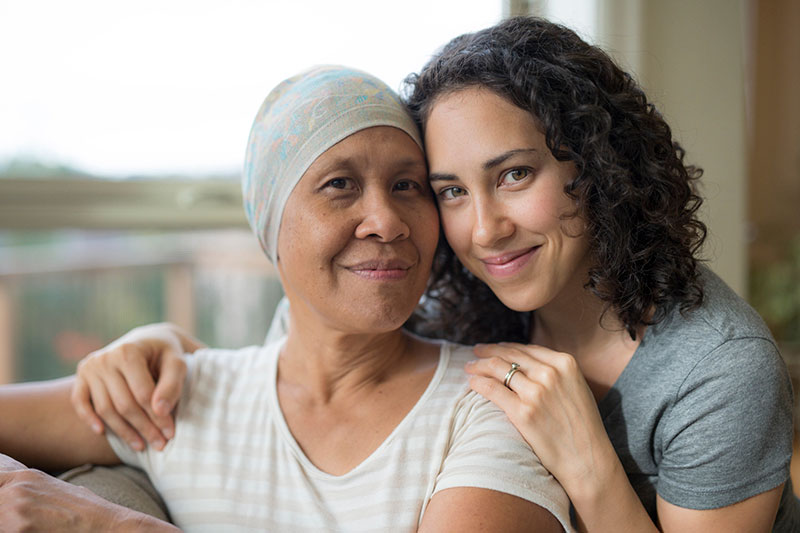
Senior care services can help family caregivers provide cancer care at home.
When a loved one receives a cancer diagnosis, it may feel as if your whole world has turned upside down. What was once a high priority pales in comparison to the need to do anything you can to help the person you love through this unforeseen experience.
If you’re uncertain where to even get started in your position as a cancer care provider, our in-home care assistance experts are here to help. Take a deep breath, settle back with a cup of coffee, and read through the strategies below.
What Will Your Loved One with Cancer Need?
Quite often, cancer treatments are given in outpatient settings as opposed to during a hospital stay. As a result, a way to get to treatments is one of the most important facets of cancer care. Additionally, the person may require:
- Help with symptom management. Chemo and other cancer treatments, as well as the cancer itself, may cause nausea and vomiting, diarrhea or constipation, exhaustion, changes in appetite, pain, and more. You can help by making sure the person is hydrated, talking with the physician about any worries and implementing suggestions, and cooking light, healthy meals in accordance with his / her tolerance level and preferences.
- Help around the house. Having help with housekeeping, laundry, yardwork, grocery shopping and other errands is often a welcome relief for someone fighting cancer.
- A healthcare liaison. Keeping tabs on all of the medical components of cancer care can be complicated. Ask if the person would like you to be there for doctors’ appointments to take down notes, ask questions, relay information back to the medical team, etc.
- A friend to listen. Many times, people have a tendency to shy away from difficult conversations. For someone with cancer, having a person there to listen to the difficulties being faced, concerns for the future, and whatever else that comes to mind is very important. Your thoughtful, non-judgmental presence might be the biggest gift you have to offer.
What Will YOU Need?
Taking care of yourself is vital while caring for someone with cancer to ease stress and avoid depression and caregiver burnout. Make sure to designate ongoing, scheduled times away for activities that are calming: reading, going on a walk, soaking in a warm bath, engaging in hobbies you enjoy, etc.
You’ll also need an outlet for any emotions that arise during caregiving. Find a skilled counselor to meet with or a dependable friend, family member, or clergy member to speak with, write in a journal, or join a cancer care support group.
If you are having trouble finding time to care for yourself, let Home With You Senior Care, expert provider of live-in care in Hampstead, MD and the surrounding areas, help. Our caregivers are fully trained and experienced in taking care of those with cancer and other chronic health conditions, and are available for as much or as little time as you need to step in while you step away.
Give us a call at 410-756-0959 any time for further cancer care resources or to make arrangements for a no-cost in-home consultation to learn more about how our respite care services can complement cancer care at home.
